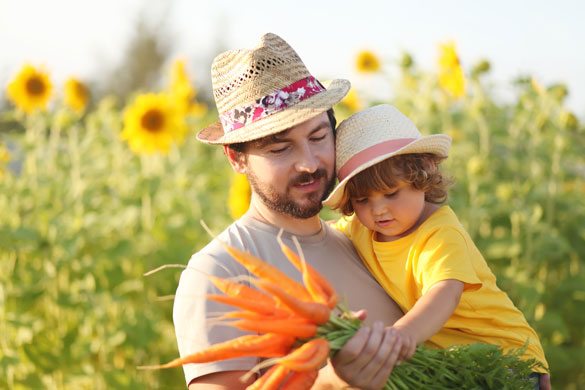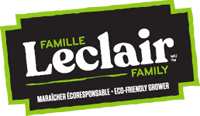Fermes Leclair et Frères Ltée.
Sustainable farming: A priority here at Fermes Leclair
Sustainable agriculture is more than a vision statement for Fermes Leclair: it’s a way of life, and it’s the basis of our claim to being “environmentally responsible market gardeners.” Properly managing our water and land resources as well as preserving biodiversity are central to everything we do. Given the challenges we face—ranging from insect pests to global warming—we advocate the most natural approach possible so as to promote healthy ecosystems, preserve our environment, and ensure food security for consumers. We achieve those objectives through continuous research and development, wise application of technology, sound environmental knowledge, and our capacity for innovation. This is evidenced by Jocelyn Leclair’s involvement with organizations committed to implementing plant-health best practices:
- The Pôle d’excellence en lutte intégrée (centre of excellence for integrated pest management, or PELI);
- Phytodata Inc., which offers research consulting services to farm companies along with integrated pest management solutions such as sterile flies;
- The Prisme consortium, Québec’s leading farm-crop tracing and monitoring network.
Fermes Leclair’s actions to help advance sustainable farming
We have implemented multiple strategies to promote sustainable agriculture and minimize the use of pesticides, including integrated pest management, soil conservation and water management. These rely on observation and experimentation to better manage and increase crop yield in environmentally friendly ways, assuming that mechanical, biological and chemical methods are available. Crop-specific monitoring, flower strips, spore traps, sterile flies, microbial biostimulants, crop rotation, green manure, and tensiometers are among the methods used.
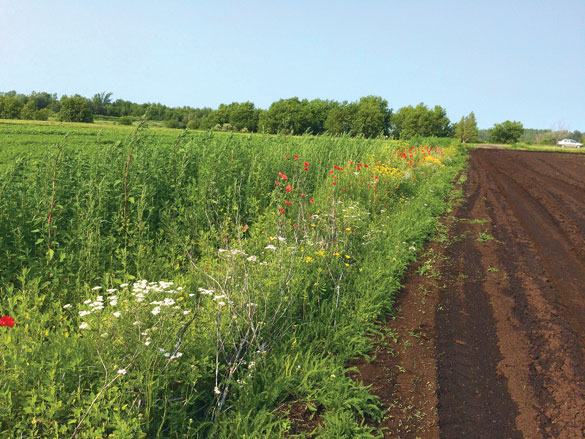
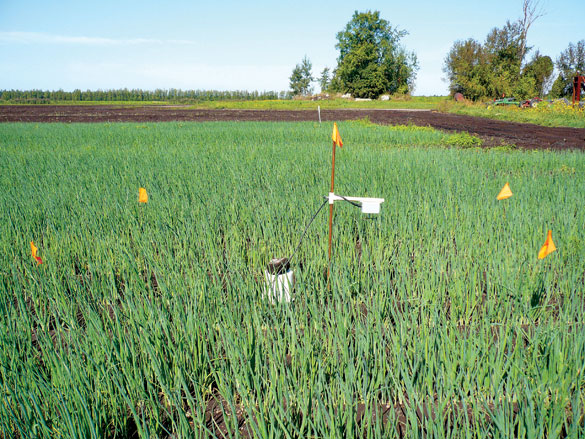
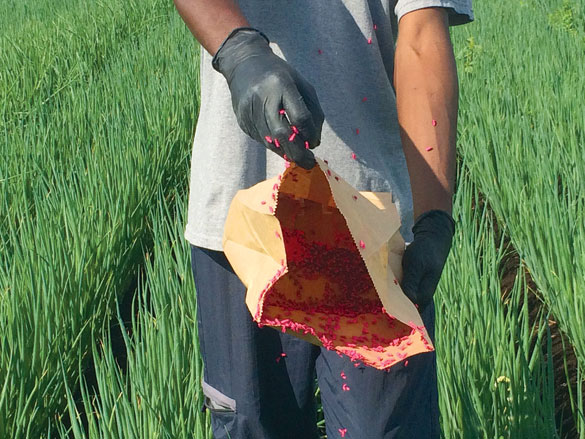
Sustainable farming. It’s working for our future—and yours.
Working on a farm is a rewarding challenge, because no two days are alike and because of the need for constant innovation to improve our practices. Through partnerships with organizations, other farmers and agronomists, we improve our knowledge and reap the rewards of everyone’s individual efforts. Our mission, to position ourselves as eco-responsible market gardeners, motivates us to push forward and work even harder to offer consumers superior-quality, safe and ecologically grown vegetables.
